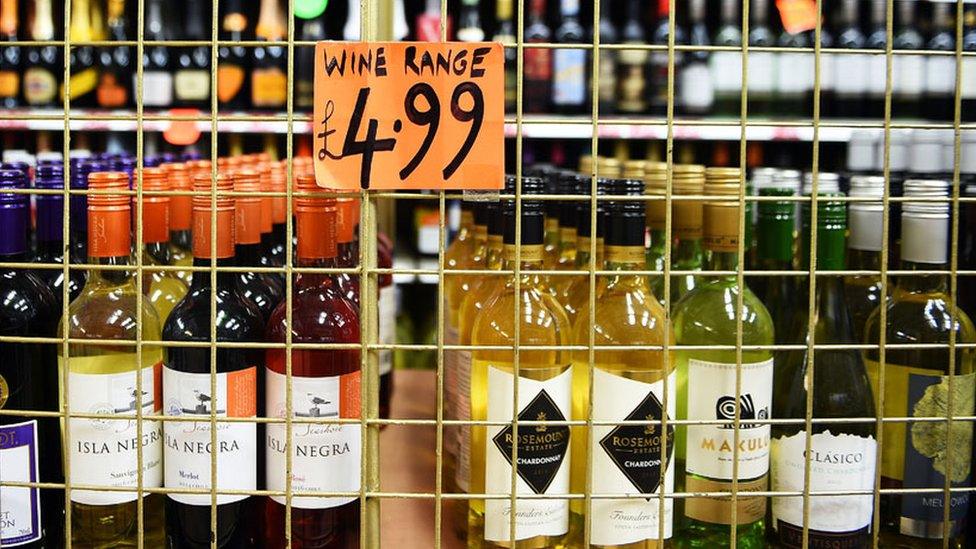MUP had 'modest' economic impact on drinks industry
- Published
- comments
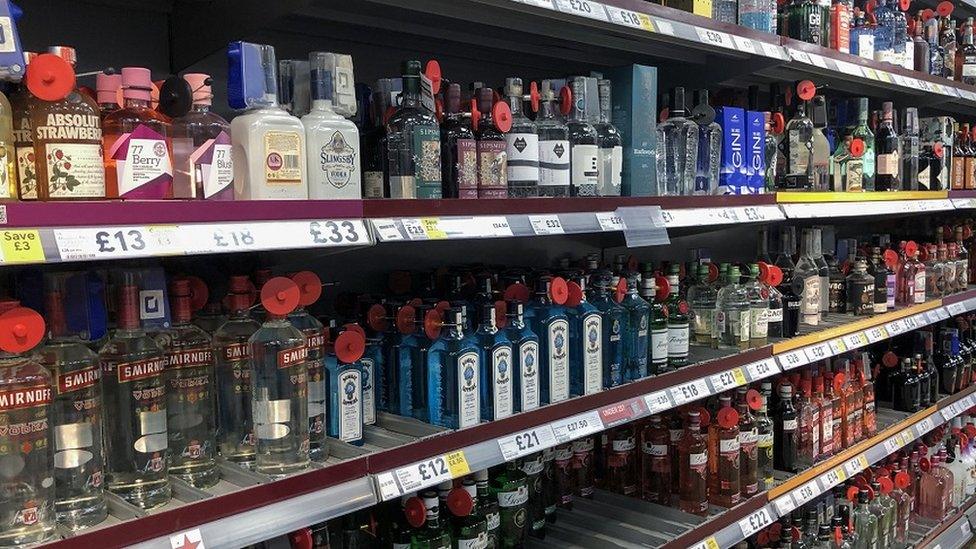
A report says consumers switched to smaller bottle sizes or low-alcohol products, but a drop in demand was offset by increased prices
The introduction of minimum pricing for alcohol has had a modest economic impact on the drinks industry in Scotland, a report has found.
The study commissioned by NHS Health Scotland, external suggests a drop in demand for some products was offset by increased prices.
Researchers said retailers adapted to cope with price changes.
Scotland was the world's first nation to require all licensed premises to set a minimum unit price (MUP) for alcohol.
The policy was designed to increase the cost of cheap, high-strength drinks such as ciders and some spirits seen to cause the most harm.
In an initial assessment of the effects of MUP, researchers at Frontier Economics evaluated its economic impact on producers and alcohol retailers in the nine months following the introduction of the policy in April 2018.
Many reported a decrease in alcohol sales was offset by increased prices and consumers switching to existing premium brands.
Consumers switched
It said no retailers or producers had reported reducing staff numbers or investment as a result of MUP.
Andrew Leicester, manager at Frontier Economics, said: "The respondents interviewed in this study suggested that demand changed in a number of ways in the first nine months following MUP coming into force, with sales of products that were previously retailing below the minimum unit price decreasing the most.
"Demand for smaller sizes, low-alcohol products or premium products less affected by price increases, has seen some producers and retailers adapt their strategy and product offering in response to MUP."
He emphasised the difficulties in evaluating the full impact of MUP when other factors had also affected the market, notably the 2018 football World Cup and the long, hot summer of that year.
Examples of prices
£14Whisky (70cl bottle at 40% ABV)
£13.13 Vodka (70cl bottle at 37.5% ABV)
£1 Lager (500ml can at 4% ABV)
£2.50Cider (1 litre bottle at 5% - normal strength)
£4.69 Red wine (75cl bottle at 12.5% ABV)
NHS Health Scotland commissioned the research as part of a wide-ranging evaluation of the Alcohol (Minimum Pricing) (Scotland) Act 2012 which established MUP
It has a sunset clause which requires the Scottish Parliament to vote before 1st May 2024 on whether or not the policy will continue.
Neil Craig, head of evaluation at NHS Health Scotland, said: "NHS Health Scotland are leading a robust and comprehensive evaluation of Minimum Unit Pricing, which will provide a full understanding of what difference the legislation is making and to whom.
"That of course includes the impact MUP could make to levels of alcohol-related health and social harm, but also requires us to assess the effect on the alcoholic drinks industry in Scotland."
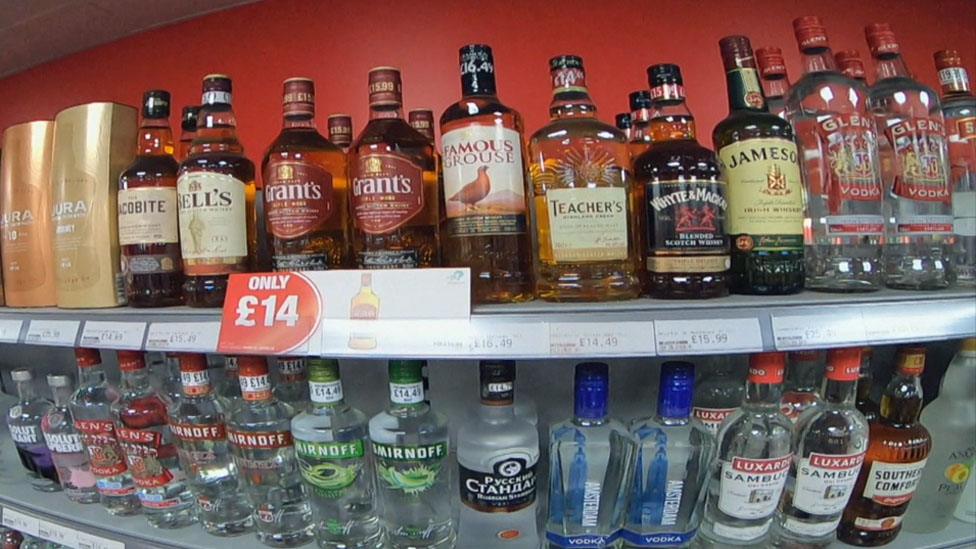
The researchers interviewed retailers on both sides of the Scotland-England border to see if MUP had led to an increase in people from Scotland buying alcohol from stores in England.
But they said retailers noted cross-border purchasing was happening prior to the introduction of MUP, as many consumers who live near the border in Scotland work in Carlisle or Berwick-upon-Tweed, or conduct weekly grocery shopping in these towns.
Alison Douglas, chief executive of Alcohol Focus Scotland said: "It's encouraging to see further evidence that MUP has resulted in less alcohol being sold in Scotland and that this has been achieved without any negative impact on the alcohol industry.
"Even a small reduction in the amount of alcohol consumed in Scotland will bring big benefits for people's health."
The next findings from the MUP evaluation are to be published by early 2020 and include the effect of the policy on children and young people.
- Published26 September 2019
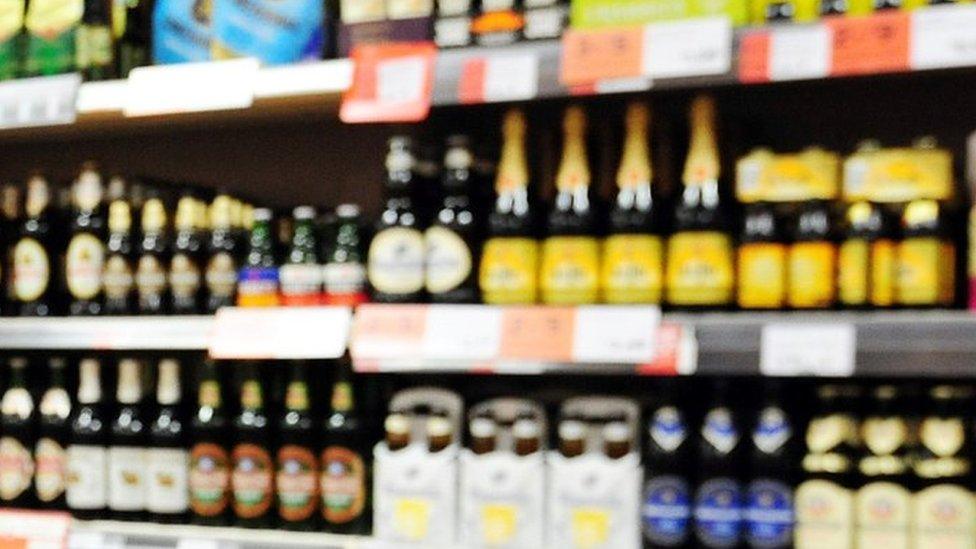
- Published1 August 2019
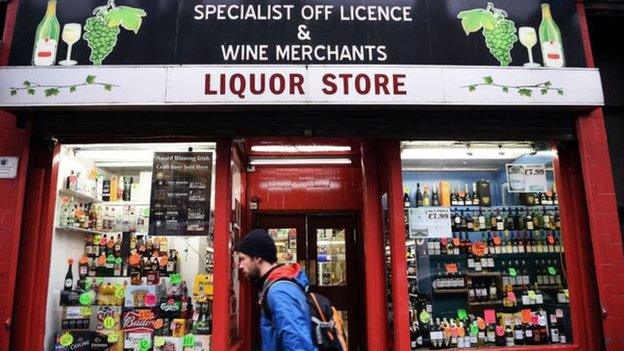
- Published19 June 2019
